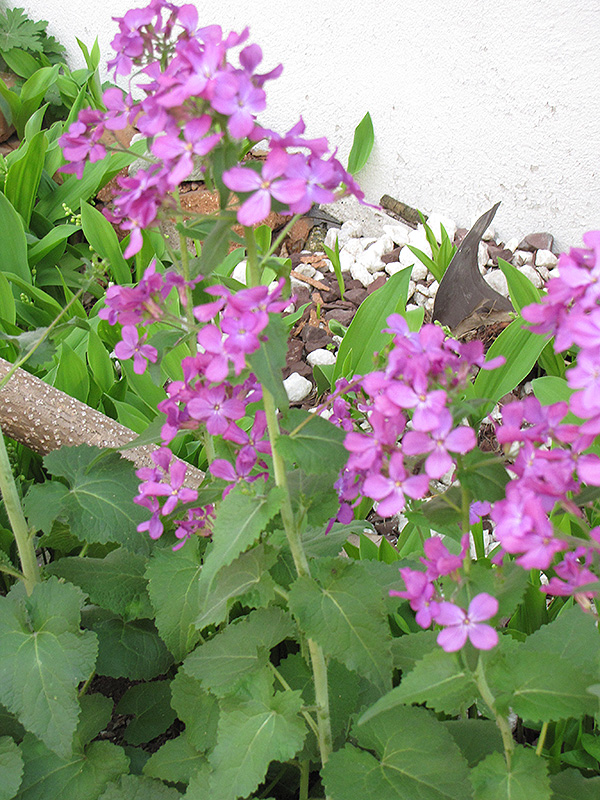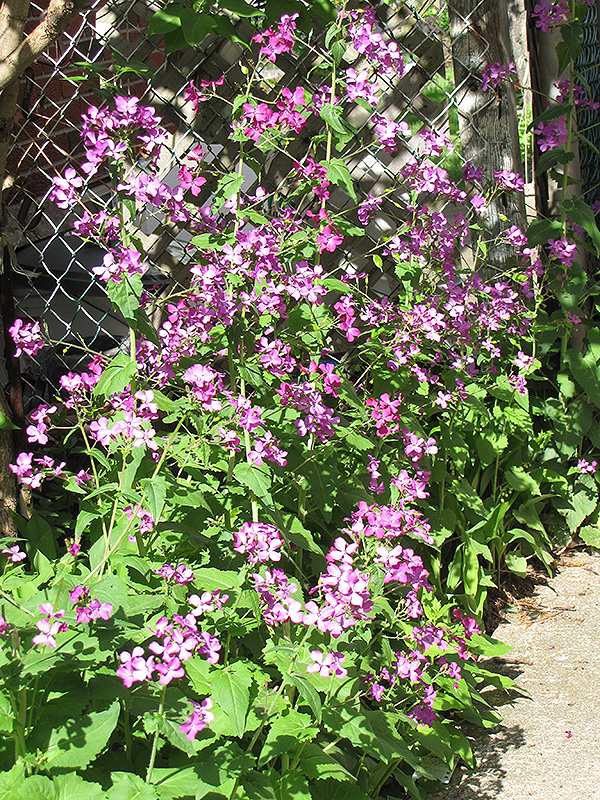Plant Library
Height: 3 feet
Spread: 3 feet
Sunlight:
![]()
![]()
Hardiness Zone: 2a
Other Names: Honesty
Description:
A favorite old fashioned biennial with showy sprays of pretty lilac purple flowers in spring, followed by interesting papery silver dollar sized seedpods which are great for dried arrangements; self seeding needs to be controlled; attracts pollenators
Ornamental Features
Biennial Money Plant is bathed in stunning clusters of fragrant lilac purple star-shaped flowers with white centers at the ends of the stems from late spring to early summer. The flowers are excellent for cutting. The fruits are showy creamy white pods carried in abundance from early fall to late winter. Its serrated heart-shaped leaves remain green in color throughout the season.
Landscape Attributes
Biennial Money Plant is an herbaceous biennial with a more or less rounded form. Its medium texture blends into the garden, but can always be balanced by a couple of finer or coarser plants for an effective composition.
This is a high maintenance plant that will require regular care and upkeep, and is best cleaned up in early spring before it resumes active growth for the season. It is a good choice for attracting butterflies and hummingbirds to your yard. Gardeners should be aware of the following characteristic(s) that may warrant special consideration;
- Self-Seeding
Biennial Money Plant is recommended for the following landscape applications;
- Mass Planting
- General Garden Use
- Naturalizing And Woodland Gardens
Planting & Growing
Biennial Money Plant will grow to be about 3 feet tall at maturity, with a spread of 3 feet. It grows at a fast rate, and tends to be biennial, meaning that it puts on vegetative growth the first year, flowers the second, and then dies. However, this species tends to self-seed and will thereby endure for years in the garden if allowed.
This plant does best in partial shade to shade. It does best in average to evenly moist conditions, but will not tolerate standing water. It is not particular as to soil type or pH. It is somewhat tolerant of urban pollution. This species is not originally from North America.






